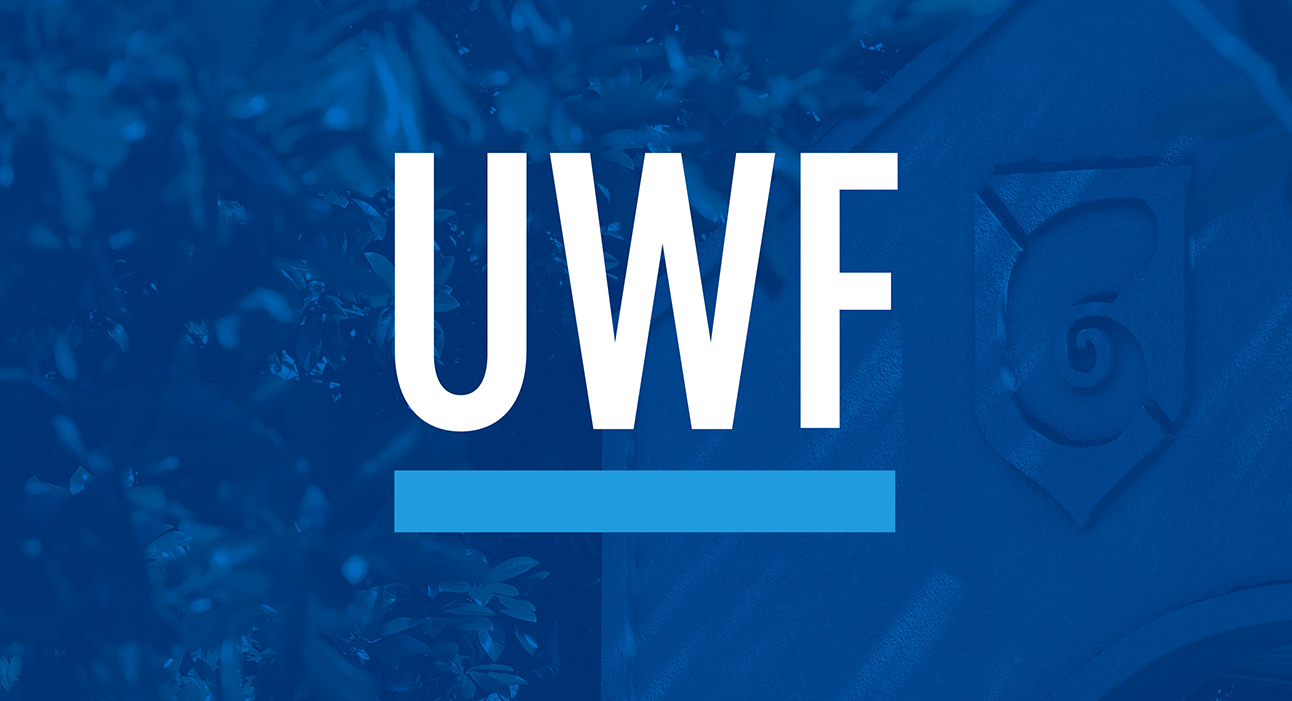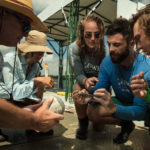CEDB looks beyond microbial biology for new research projects
By Richard Conn, UWF Center for Research and Economic Opportunity

Dr. Wade Jeffrey is a professor in the University of West Florida Department of Biology and has served as director of the University’s Center for Environmental Diagnostics and Bioremediation (CEDB) since June 2015. He has been with the center since 1991.
The CEDB is participating in two research consortia financially supported by the Gulf of Mexico Research Initiative, which was funded following the Deepwater Horizon oil spill in 2010.
Much of his scientific career has been dedicated to studying the effects of ultraviolet radiation on marine microbes which has taken him from the Arctic to Antarctica and many places in between.
Q: You took over as director of the CEDB in 2015. What goals do you have for the department?
Jeffrey: As I like to tell people, we’ve been very good at what we do for 25 years, and if ain’t broke don’t fix it. But I have a couple of specific goals that I would like to see us work towards, and one is to grow.
I would like to see us expand both in the number of personnel that we have, but also into the disciplines in which we work. Currently, pretty much everybody who works for the center is a biologist of one sort or another – microbial biologists, even more specifically. I would like to see us expand to other disciplines so that it facilitates better interaction with other departments on campus. Chemistry and engineering, are two obvious ones. Earth and environmental sciences is another one. Potentially, it could be even economics and history. It depends on how broad we want to cast our net.
There are calls for (grant) proposals that come out now where they look for socioeconomic components. And the current members of CEDB don’t have that background. It would be nice to have in-house people that we could collaborate with to do that. And it’s not that expertise doesn’t already exist on campus, but when you don’t cross paths with people sometimes it’s hard to know sometimes who has what capabilities when you’re trying to make the decision on – can I or can I not try to apply for a particular grant proposal?
Q: Scientists in the CEDB have done a lot of international collaborations, including projects with researchers in France, China and Sweden. You’ve focused a lot of your research in Chile. Why is Chile such a robust area for research?
Jeffrey: Chile has a phenomenal diversity in environment. The people that I have met there are the experts in the field, very highly respected Chilean scientists, and they have invited me to work with them, to bring in some of my expertise to compliment theirs. I could never work there without their collaboration. But these particular places fascinate me to no end. They are in some respects, the most bizarre, weird, interesting things I’ve ever seen in my life. And as I tell people, I’ve traveled a lot. But the first time I went and saw these places I was dumbfounded, that they were just so unique.
It is the epitome of extreme environments. There’s a whole sub-discipline of microbial ecology called “life in extreme environments,” and so the Chilean work in particular is pretty extreme. But I’ve done work in the polar oceans as well, which also are extreme environments. And so, unintentionally, I’ve become sort of an extreme microbiologist as well.
Q: What is some of the current research being done at the CEDB?
Jeffrey: (Dr.) Jane Caffrey’s lab is working on a couple of projects examining the health of sea grass communities both locally and along the northeast Gulf of Mexico. She also has a project examining the ecological role that artificial reefs play in the Gulf. There are a very large number of artificial reefs in our area, but while we know they attract fish, we know very little about how they drive growth and production in a larger context.
(Dr.) Joe Lepo continues to develop his collaborations with scientists in China and the Philippines. They are interested in both water quality issues but also developing ways to use microbiology to improve the growth and harvest of rice crops. He also continues to pursue projects examining the bacterial growth on complex hydrocarbons. (Dr.) Jeff Eble is our liaison with the Gulf Islands Research and Education Center with the National Park Service. He has numerous projects engaging the community with the park and the research and educational potentials it provides. In particular, he has looked at invasive frogs in the park. He also used the invasion of lion fish to train local school teachers and their students in how to conduct modern molecular biology research.
(Dr.) Jim Spain joined us this year and brings his world expertise in the microbial degradation of chemical pollutants and environmental biotechnology.
In my lab we have continued looking at sunlight interactions with oil at many different levels, most of the time looking to see how it affects microbial growth. I have a project with some undergraduates where for almost exactly a year they’ve been looking to see whether there is a seasonal cycle to how the environment responds to oil. In a nutshell, you can ask the question, Do you get the same response if the oil spill happens in the summer as if it happened in the winter?
We’re continuing to work with the Chileans, and hoping to expand it, again, trying to get to the ultraviolet radiation effects in greater detail than we have. Because of the environment and the altitude in Chile, it’s one of the highest UV environments I’ve ever seen. The organisms are getting blasted with UV but somehow they’re able to thrive and survive there. So a lot of it is, how have they been able to adapt to be able to grow under such extreme conditions? We have pending proposals to try to get back to the Antarctic. I actually started my career working in Antarctica, a long time ago. I’d like to go back. It’s kind of near and dear to my heart to do work down there.
I’ve got four new Ph.D. level scientists this year, so we’re really excited this year where that’s going to take us as we expand some projects and look at some new directions.
Excerpts from the Experts is a monthly feature that highlights research conducted by UWF faculty.


